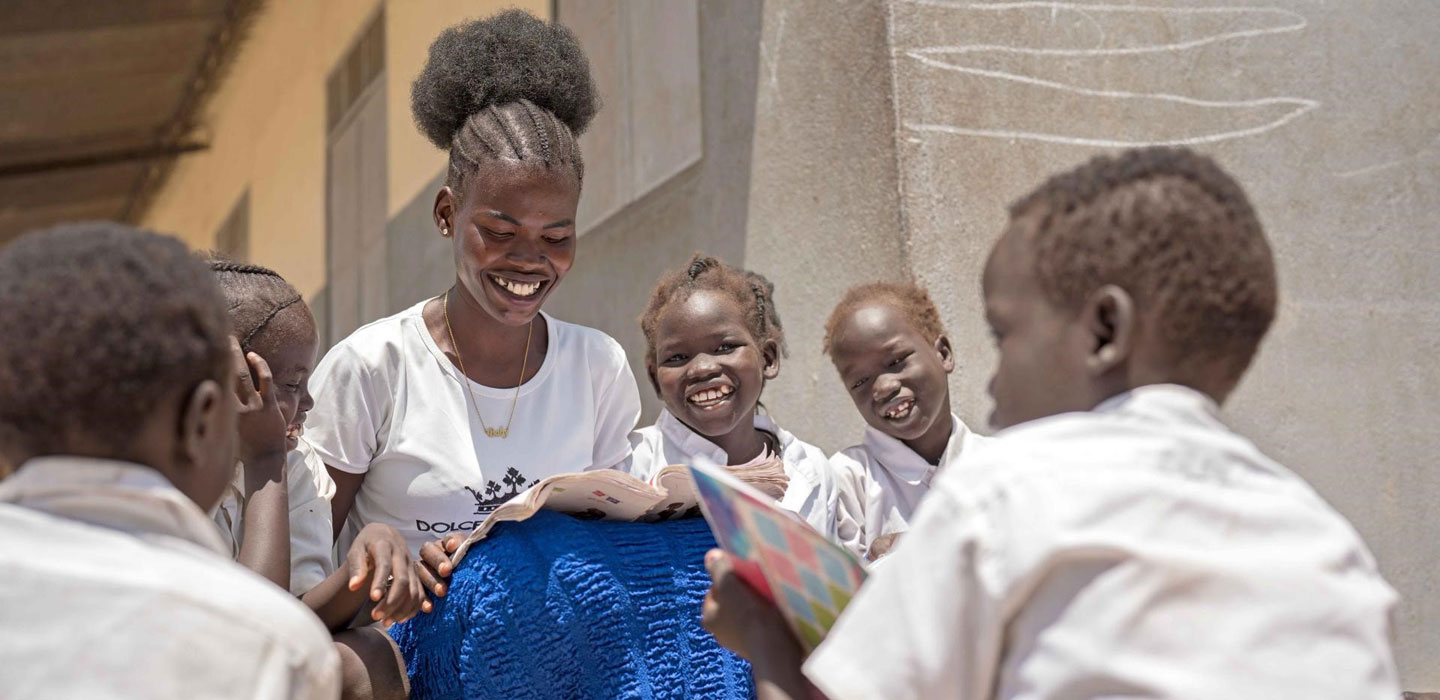A new strategy for a new country: IFAD supports youth in South Sudan
IFAD Asset Request Portlet
Asset Publisher
A new strategy for a new country: IFAD supports youth in South Sudan
Estimated reading time: 3 minutes
IFAD could not transform rural lives and rural communities without a strong understanding of the countries we operate in. From Latin America to Southeast Asia, our strategic choices largely depend on one thing: the Country Strategic Opportunities Programme (COSOP).
A COSOP is a document that outlines IFAD's investment in a country. It helps us identify financing and facilitate management for our teams. This six-year plan reiterates our commitment to the local government as it addresses needs, works towards sustainable development and responds to shocks.
This process is particularly important in fragile states like South Sudan. Following its establishment twelve years ago, the youngest and third most fragile country in the world has encountered a myriad of challenges, including recurring natural disasters, food insecurity, conflict and the long-lasting effects of the COVID-19 pandemic. All of which greatly exacerbated an already dire humanitarian situation.
Since 2011, IFAD has helped to improve the lives of tens of thousands of rural South Sudanese households. But in a country where eight in ten people live in rural areas and rely on subsistence farming, there is still much work to be done. This is why IFAD is developing its first South Sudan COSOP, an important step in the right direction given our growing presence in the country.
So how can this strategy do just that?
Have your say
First, we conduct consultations with selected stakeholders at national and state level – from development partners and civil society to the private sector. We get their views and expertise on the current development context as well as their suggestions on what IFAD’s future focuses should be.
But the COSOPs also rely heavily on the very people IFAD-supported projects are created for: vulnerable rural groups. That’s why we have consultations with them to gather their views on what’s working and what’s not, and what they would like us to focus more on.
These discussions give us a better understanding of where to invest and mobilize funds. We ensure these groups are representative of different socio-economic backgrounds and give them a safe space for interactive engagement.
Calling all youth
In South Sudan, seven in 10 people are aged between 18 and 35, so these youth were a critical audience to consult with as we developed the new COSOP. As 18-year-old Grace told us, “development starts with us”.
Facing high unemployment rates, South Sudanese youth manage to get by with family support, domestic work, agriculture and buying and reselling small goods at the market. But life is difficult for them. “Sometimes, we just manage to work just one day a month, earning as little as 3,000 South Sudanese Pounds (about US$ 23),” says 28-year-old Tape K.
“It’s about who you know, and who knows you, even if you study and graduate, you need what they call a connection,” explains 19-year-old Alith M. during a consultation.
Young people of South Sudan are eager to become entrepreneurs and set up their own businesses but need access to credit and vocational training to do so. And with only four per cent of the country's farmland being cultivated, there is huge and largely unrealized agricultural potential.
Once the consultations are complete, we integrate their views throughout our strategy, including the financing framework and how we carry out monitoring and evaluation of the project.
Next, we collaborate with the government by jointly working on the drafting of the strategy, which then is reviewed and finally presented at a validation workshop for its endorsement by the government.
This COSOP lays out IFAD's plans until 2029 – during this time, we will continue to invest in a resilient future. We will work towards food and nutrition security and reducing poverty by engaging with and learning from the youth and other vulnerable groups, as well as development partners and the government. It is especially important we continue to do so, as the country remains severely impacted by climate change, fragility, economic stagnation and instability more than a decade after its independence.
Publication date: 31 May 2023